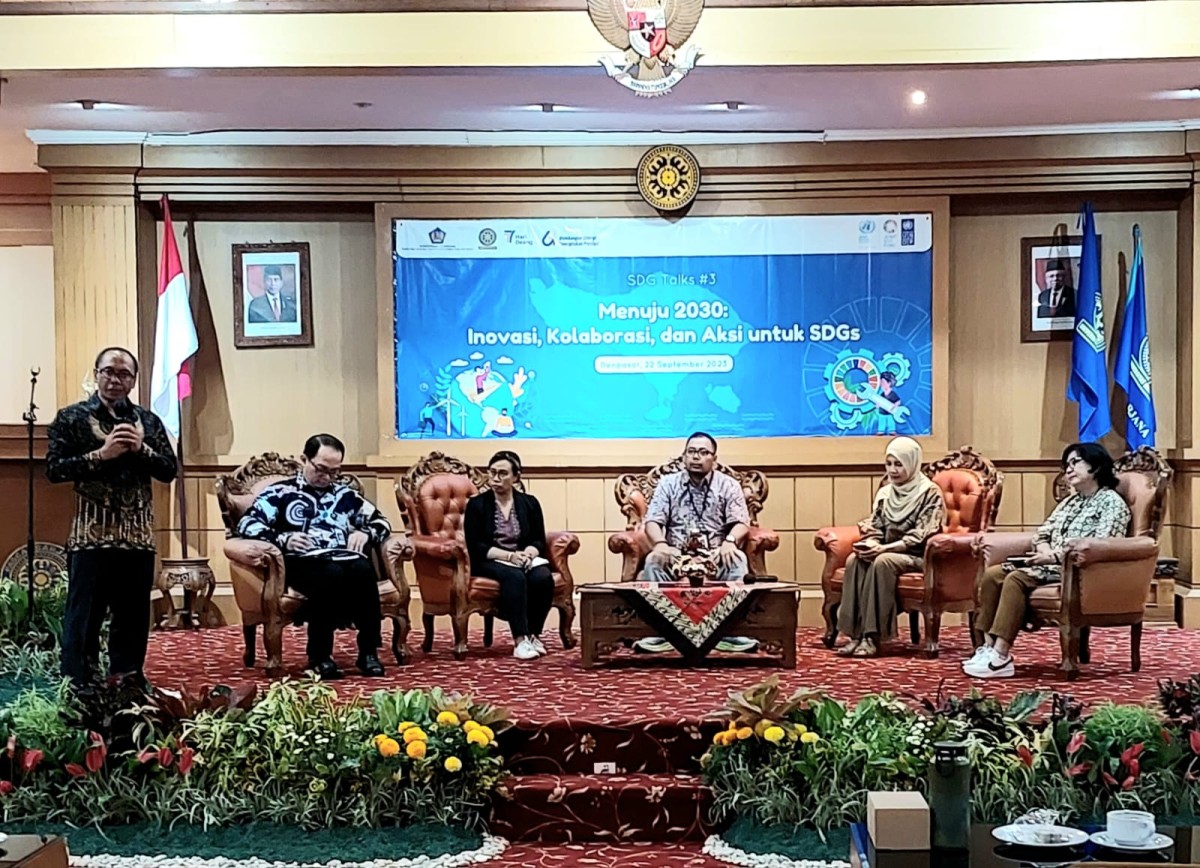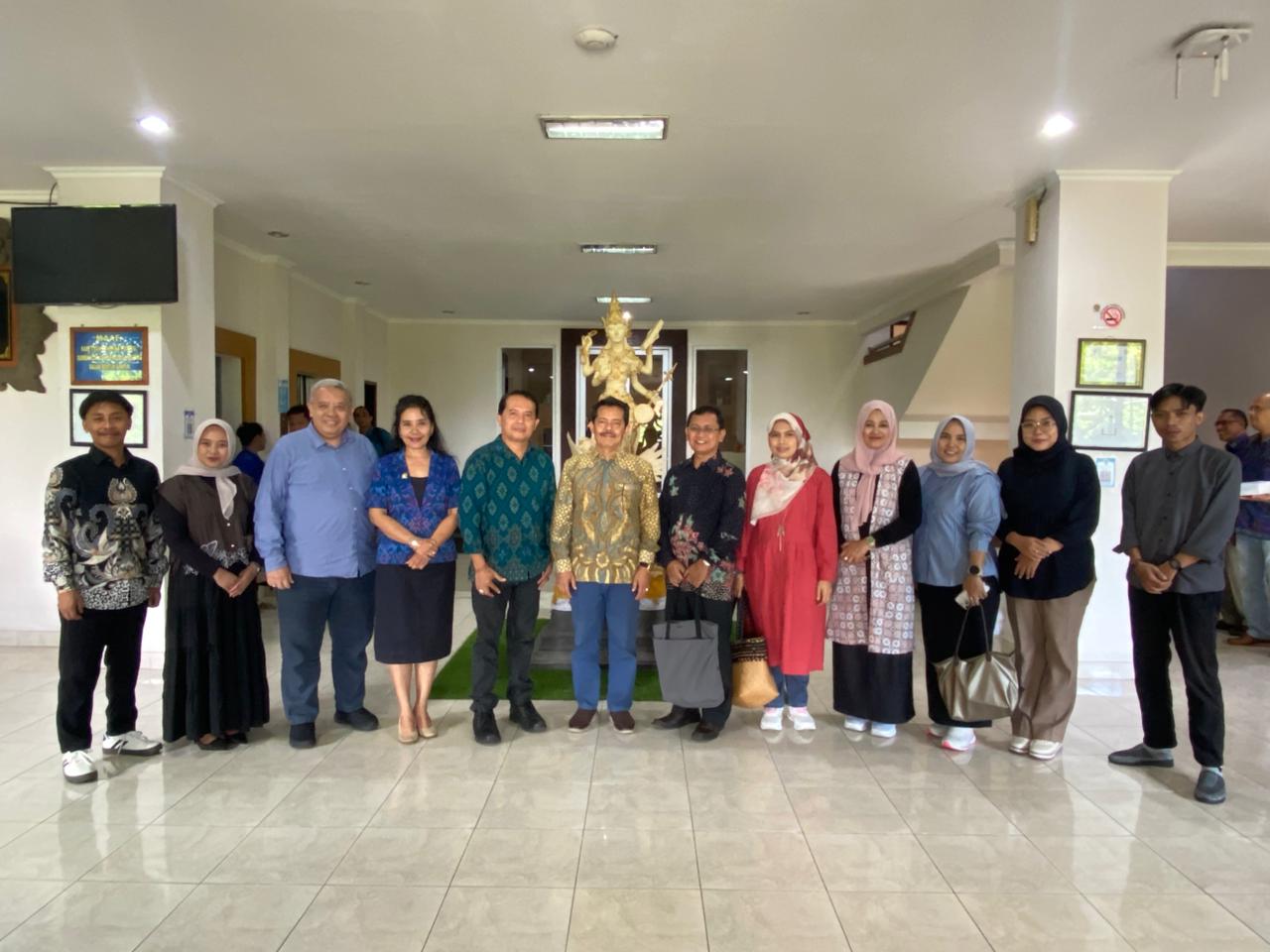Stagnant SDGs Threaten Humanity Around the World
Sustainable development goals (SDGs), launched by the United Nations several years ago, aim to save the lives of humanity. However, the COVID-19 pandemic outbreak and geopolitical instability have caused the progress toward achieving the SDGs in several aspects to stagnate, not move, or even reverse direction. This condition poses a threat to humanity today and in the future.
This was revealed at SDG Talk Series 3, "Towards 2030: Innovation, Collaboration, and Action for SDGs," which was held at the Undergraduate Postgraduate Building on Friday, September 22, 2023. The talk show was held in collaboration with the Postgraduate Program of Unud and the Director of Government Securities, Directorate General of Financing and Risk Management, Ministry of Finance.
Diandra Pratami from the UN representative office in Indonesia, or Development Coordination Officer, Economist-UN Resident Coordinator's Office, explained that the SDGs were launched in 2015 and approved to be implemented worldwide, with the target of 2030 being realized.
"The realization of SDGs is very close to people's daily lives; for example, students who have gone to college are realizing SDG goal No. 4 on proper education. In the morning, students take a shower, which means SDG No. 6, namely getting clean water, proper sanitation services, and others," said Diandra Pratami. She added that, based on evaluation data on the implementation of the SDGs throughout the world, it turns out that only 15% of the target This means that it is very difficult to achieve the realization of the SDGs by 2030.
Director of Government Securities, Directorate General of Financing and Risk Management, Ministry of Finance Deni Ridwan, S.E. Ak., M.BIT., Ph.D. generally aims to alleviate poverty, overcome inequality, and protect the environment. To realize the SDGs in Indonesia in 2030 requires a very large fund of 27,000 trillion rupiah, so the collaboration of various components in the community is needed.
"I salute Udayana University, which is very active in contributing to accelerating the realization of the SDGs. One of them is by forming the Master of Sustainable Development and Finance (MPKB) Study Program; this study program has a dual role in addition to providing literacy and preparing human resources to support the acceleration of the realization of the SDGs," he said.
Acting Director of Postgraduate Program Prof. Dr. Ir I Wayan Budiasa, SP, MP, explained that the MPKB was realized as a follow-up to the collaboration between Unud and Bappenas regarding Collaboration on National Development Planning through Education, Research, and Community Service; and OJK on Financial Services Sector Development, Sustainable Finance, Financial Education, and Consumer and Community Protection in the Financial Services Sector.
"The process of opening this study program took place quickly, in only 4 months, because the study program is considered very urgent or very much needed in its contribution to answering global, national, and local problems related to the achievement of the SDGs and the implementation of sustainable finance policies, which have become Indonesia's commitment," said the Professor of FP Unud.
Prof. Budiasa added that currently Udayana University has 13 faculties and one postgraduate program, with a total of 122 study programs consisting of 3 Diploma III study programs, 49 Applied S1 and S1 Study Programs, 9 Professional Programs, 28 Masters Programs, 13 Doctoral Programs, and 20 PPDS. Of the 122 study programs at Udayana University, six are managed by postgraduate programs, namely the Professional Engineer Program (PPI), Master Program in Environmental Science, Master Program in Ergonomics and Occupational Physiology, Master Program in Health Law, Master Program in Sustainable Development and Finance, and Doctoral Program in Agricultural Sciences, all managed by the Udayana University Postgraduate Program.

.jpeg)

UDAYANA UNIVERSITY